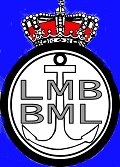

NIEUWS NOUVELLES NEWS
- Welcome
Accueil - Nieuws
Nouvelles- 14/04 Up to 1.7m teu containership capacity could be needed for Red Sea rerouting
- 17/04 Houthis Agree to Give China and Russia Ships a Pass in Red Sea
- 19/04 Sweden ends probe into Nord Stream pipeline sabotage
- 21/04 Wartsilla to deliver ammonia fuel system for two Exmar Medium size Gas Carriers
- 24/04 Seafarers Can Now Refuse to Work Ships Transiting the Red Sea Region
- 26/04 Cost of ownership is a potential barrier for methanol-fuelled passenger ships
- 28/04 Uitspraak in geschil concessie: Haven moet DP World miljoenen betalen
- 01/05 Mijnenjager ‘Crocus’ neemt deel aan NAVO-oefening ‘Nordic Response’
- 03/05 Dutch effort to end Russian LNG import impeded by Total deal
- 05/05 Euronav commande les deux premiers navires-citernes "dualfuel" au méthanol
- 08/05 Red Sea: New images show British ship Rubymar has not sunk
- 10/05 Amerikaanse FourWorld stapt nu ook in België naar rechter tegen CMB
- 12/05 MSC Containership Prohibited from Departing Canada as Fire Winds Down
- Kalender Calendrier
- BML Nieuws
LMB Nouvelles - Historiek
Historique- 26/03 La Marine militaire belge 1830-1860 (I)
- 02/04 La Marine militaire belge 1830-1860 (II)
- 02/04 La Marine militaire belge 1830-1860 (III)
- 09/04 La Marine militaire belge 1830-1860 (IV)
- 09/04 La Marine militaire belge 1830-1860 (V)
- 16/04 La Marine militaire belge 1830-1860 (VI)
- 16/04 La Marine militaire belge 1830-1860 (VII)
- 23/04 La marine militaire belge 1830-1940 (VIII)
- 23/04 La marine militaire belge 1860-1940 (IX)
- 30/04 Fire on board of Surf City.
- 06/05 Les Dunkerquois dans la tourmente
- 13/05 Le naufrage du Navire-École belge «Comte de Smet de Nayer»
- Dossier
Dossier
- 15/04 Looking ahead: Marine insurance in an increasingly volatile world
- 18/04 Prepare for 2026 foam firefighting ban
- 20/04 Toqua – making the best ship performance models
- 22/04 Mise à l'eau du Vlissingen, deuxième navire de lutte contre les mines du programme rMCM belgo-néerlandais.
- 25/04 Death on LPG carrier in Antwerp engine room fire
- 27/04 The biggest crew concerns –OTG event
- 29/04 MSEA – why we went for methanol
- 02/05 Stolt – refusing bribery is working
- 04/05 Clean Arctic Alliance Welcomes Support for New Arctic Emission Control Areas for Shipping
- 07/05 The top five trends in tug and towage in 2024
- 09/05 China’s shipbuilders chart exciting waters
- 11 05 Ardmore’s choice of vessel performance technologies
- Raad
Comité - Verenigingen
Associations - Contacten
Contacts - Links
Liens - Boeken
Livres - Archives
Archieven- Archieven 1 - Archives 1
- Archieven 2 - Archives 2
- Archieven 3 - Archives 3
- Archieven 4 - Archives 4
- Archieven 5 - Archives 5
- Archieven 6 - Archives 6
- Archieven 7 - Archives 7
- Archieven 8 - Archives 8
- Archieven 9 - Archives 9
- Archieven 10 - Archives 10
- Archieven 11 - Archives 11
- Archieven 12 - Archives 12
- Archieven 13 - Archives 13
- Archieven 14 - Archives 14
- Archieven 15 - Archives 15
- Archieven 16 - Archives 16
- Archieven 17 - Archives 17
- Photos
Foto's
Cost of ownership is a potential barrier for methanol-fuelled passenger ships
Written by Ian Taylor
The total cost of ownership (TCO) for passenger ships retrofitted with methanol dual-fuel engines can be more than double the cost of blended fuel (Blend B30), heavy fuel oil (HFO) and HFO with Onboard Carbon Capture and Storage technologies (OCCS), according to a new report from Lloyd’s Register (LR). Fuel for thought: Methanol for Passenger Ships examined the TCO for operators over a 15-year period and based results on a calculation that 65% of voyage time would be spent in EU waters – and concluded that ‘the bunkering price of methanol was the main commercial barrier for its adoption’. However, the study also highlighted that methanol is a technically viable fuel for ship operators looking to reduce the carbon emissions of passenger ship newbuilds, owing to the similar characteristics of methanol to existing fuels.The report maintained that greater investment is needed in green and bio-methanol production along with improved bunkering infrastructure to increase fuel availability and reduce costs to a commercially viable level. Natasha Pritchard, VP Strategic Key Accounts (Cruise), Lloyd’s Register said: ‘Our latest Fuel for thought report brings some much-needed insights for passenger ship owners evaluating methanol as part of their energy transition pathway. Whilst methanol as marine fuel holds considerable promise as a low carbon solution for passenger ship propulsion, the total cost of ownership (TCO) compared to other fuels may represent an obstacle to its widespread take-up in the segment. It is therefore vital that renewable and low-carbon production of methanol is prioritised in order to drive down these costs.’
Source : bunkerspot
LMB-BML 2007 Webmaster & designer: Cmdt. André Jehaes - email andre.jehaes@lmb-bml.be